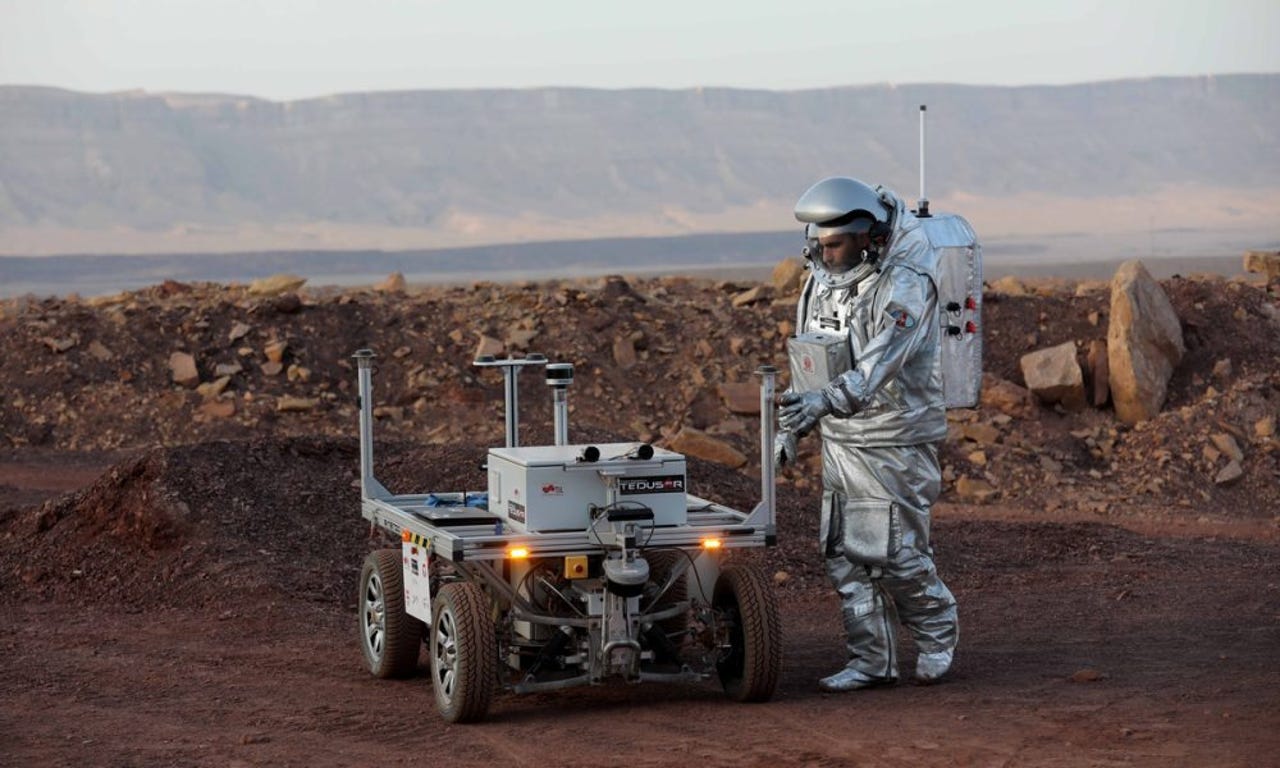NASA, Epic Games launch competition to crowdsource VR tech for Mars exploration


Virtual reality (VR) has become a great training tool for many enterprise applications. But what if your enterprise happens to be preparing to explore Mars?
Making a VR simulator for Mars exploration is a top priority for NASA, which is under presidential orders to land a human on Mars by 2023. The clock's ticking, and NASA is teaming up with Epic Games and Buendea, a group solving real-time extended reality (XR) graphics simulation challenges, on a public competition hosted on crowdsourcing platform HeroX. The goal is to create contributions toward a VR testbed environment that replicates the experiences an astronaut may encounter on Mars.
ZDNET Recommends
"Creators can use Unreal Engine to build realistic simulation scenarios to help prepare NASA for future missions, whether that's to the moon or to Mars," said Seb Loze, Unreal Engine business director for simulation at Epic Games. "Whether you're a game designer, architect, hobbyist or rocket scientist, anyone can build with UE5, and we can't wait to see the immersive simulations the community comes up with."
I'm a big fan of NASA's crowdsourcing challenges, which it often does in tandem with HeroX. The challenges serve as a twist on the classic public-private partnerships that have defined the space agency's relationship with private industry for decades. Getting the public involved capitalizes on NASA's evolving role as organizer of space exploration, especially in an age when upstart companies are blasting billionaires into orbit in splashy launches.
Previous crowdsourced competitions have sought solutions for utilizing space waste and bringing power solutions to the moon.
The new NASA MarsXR Challenge seeks contributions to an XR testbed environment that replicates the experiences and situations astronauts may encounter on Mars.
NASA and Buendea are currently collaborating on the Mars XR Operations Support System using Epic Games' Unreal Engine 5. Participants of the NASA MarsXR Challenge will get special access to this VR environment, which includes martian gravity and weather; realistic Martian terrain; and assets, such as rovers and suits.
The idea is for competitors to develop additional assets and scenarios within the VR environment, ones that will likely need to be performed by early human explorers to the Red Planet. The simulations could ultimately be used to train astronauts and future Mars visitors.
"It's always exciting to see how cutting-edge technology makes what we thought previously impossible possible," said HeroX President and CEO Kal K. Sahota. "HeroX's expansive network is sure to find ways to further develop VR technology and better prepare humans for space exploration."
There's some cash involved as well, with a total purse of $70,000. Think you've got the right stuff? You can enter the contest here.